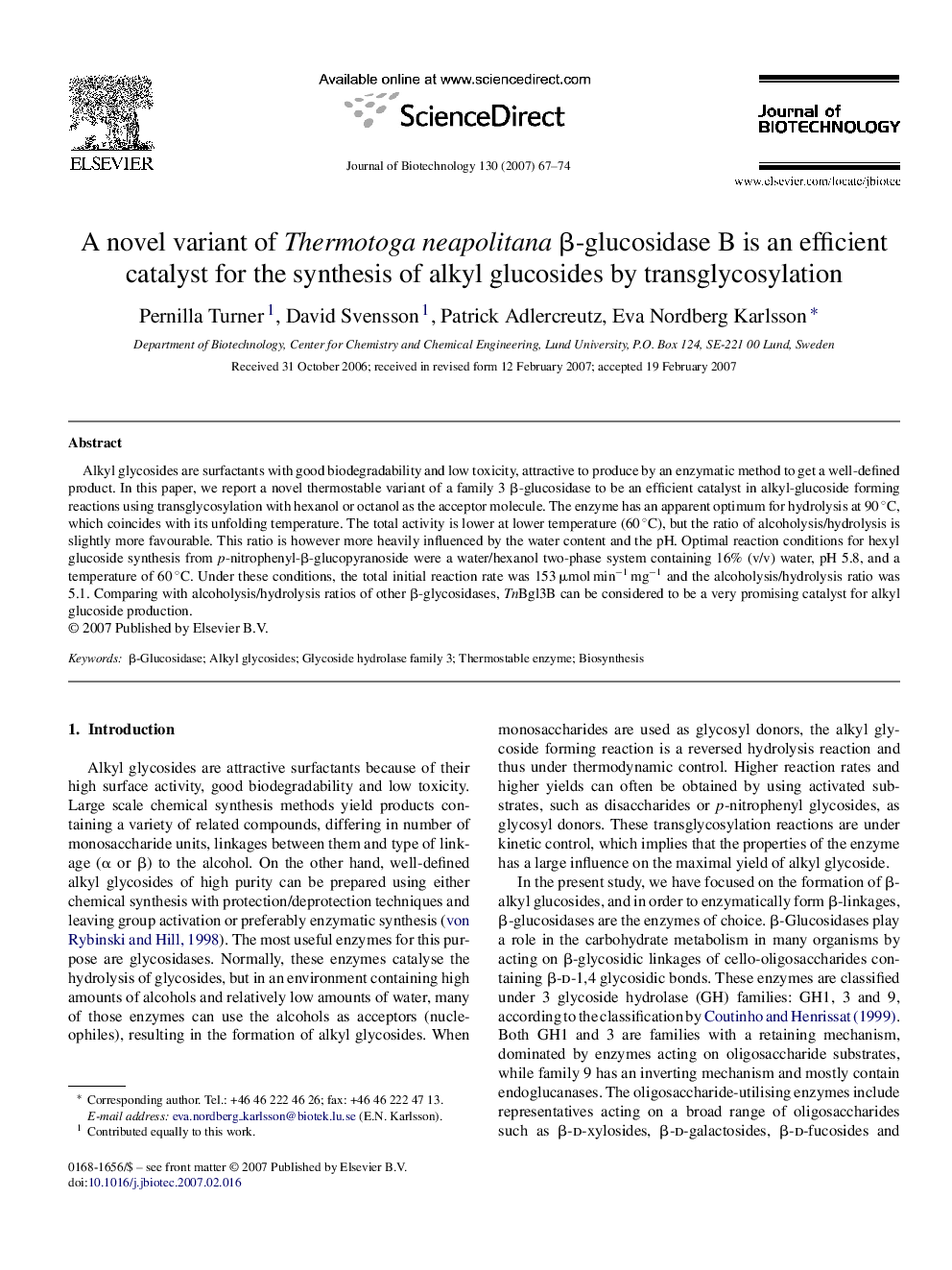| Article ID | Journal | Published Year | Pages | File Type |
|---|---|---|---|---|
| 25296 | Journal of Biotechnology | 2007 | 8 Pages |
Alkyl glycosides are surfactants with good biodegradability and low toxicity, attractive to produce by an enzymatic method to get a well-defined product. In this paper, we report a novel thermostable variant of a family 3 β-glucosidase to be an efficient catalyst in alkyl-glucoside forming reactions using transglycosylation with hexanol or octanol as the acceptor molecule. The enzyme has an apparent optimum for hydrolysis at 90 °C, which coincides with its unfolding temperature. The total activity is lower at lower temperature (60 °C), but the ratio of alcoholysis/hydrolysis is slightly more favourable. This ratio is however more heavily influenced by the water content and the pH. Optimal reaction conditions for hexyl glucoside synthesis from p-nitrophenyl-β-glucopyranoside were a water/hexanol two-phase system containing 16% (v/v) water, pH 5.8, and a temperature of 60 °C. Under these conditions, the total initial reaction rate was 153 μmol min−1 mg−1 and the alcoholysis/hydrolysis ratio was 5.1. Comparing with alcoholysis/hydrolysis ratios of other β-glycosidases, TnBgl3B can be considered to be a very promising catalyst for alkyl glucoside production.
